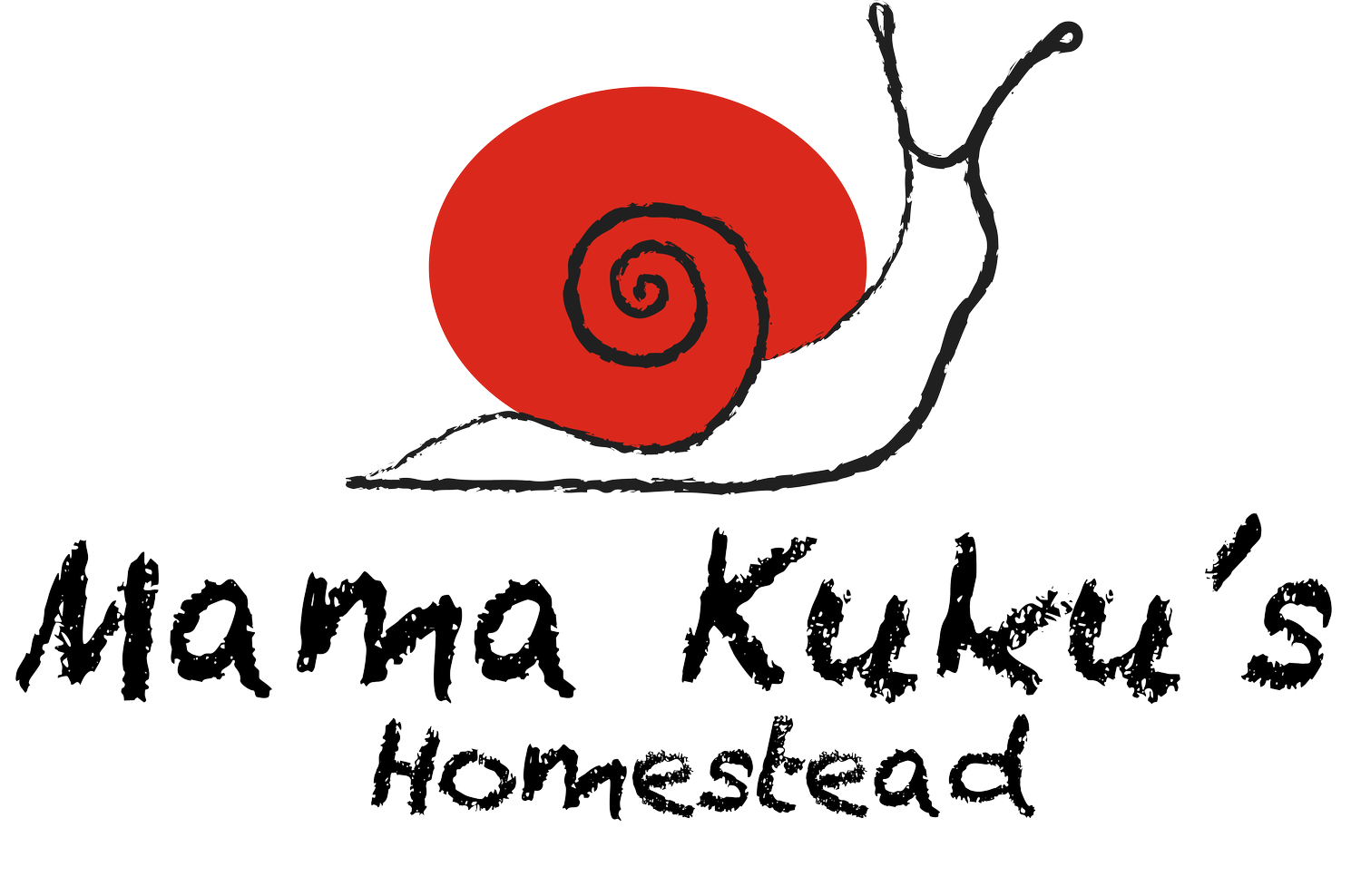FAQ's
-
🐌 Why snails?
Because snails are storytellers in their own right—slow, steady carriers of ancestral knowledge. In my childhood village of Amuzi, they were part of the forest’s quiet symphony. Now, they’re center stage in our journey toward sustainability.
Snails are gentle decomposers, protein-packed delicacies, and incredible teachers of balance, circularity, and care. At MKH, we honor them not only as food but as co-workers in our efforts to heal soil, restore tradition, and reimagine abundance.
-
🌿 What is heliciculture?
Heliciculture is the art and science of snail farming—and here, it’s also a way of remembering. It’s how I reconnect to village rhythms and bring them into conversation with our modern needs. In research and development phase, our skincare, food, and educational offerings all emerge from this practice. Whether it’s nutrient-rich escargot, deeply hydrating snail mucin, or soil regenerating compost, every item celebrates the full cycle of use and reuse—what we now call the Biocycle.
-
📚 What is your relationship with Helical Healing Habitat?
Mama Kuku’s Homestead (MKH) is the ancestral storytelling arm of our larger ecosystem. We work closely with our sister organization, Helical Healing Habitat (HHH), a 501(c)(3) nonprofit dedicated to systems change through regenerative agriculture, knowledge sharing, and public health innovation.
Where MKH uplifts heritage, intergenerational wisdom, food sovereignty, and homestead healing practices, HHH provides the applied research, workforce development, and policy pathways to support community-led transformation at scale.
Together, we form the Biocycle Network—an evolving, collaborative model for collective care, ecological justice, and thriving local economies.
-
🌱 What is the Biocycle Strategy?
The Biocycle Strategy is our commitment to circular living. We transform local food scraps into snail feed, snails into protein and skincare, and their castings into compost to nourish gardens and food forests. It’s a closed-loop model rooted in ancestral practices, updated for a world that urgently needs healing. We believe that waste isn’t waste until we waste it—and with intention, even the smallest thing (like a snail) can be part of something revolutionary.
-
🤝 Do you partner with organizations?
Absolutely! Whether you’re a backyard dreamer or a budding entrepreneur, we’ve got starter kits, digital trainings, and personalized coaching to help you begin. Our approach is accessible, rooted in community wisdom, and focused on circular systems. You don’t need acres—just intention, a little space, and curiosity.
Do you partner with distributors and stockist?
Yes! 🐌🌿
-
🍽️ What does escargot have to do with food justice?
So much. Escargot is more than a French delicacy—it’s a climate-smart, low-footprint protein found in many global cuisines, including West African dishes. We believe food justice means honoring cultural foodways, expanding access to nutritious options, and inviting community members to reclaim ancestral skills like snail harvesting and composting. Our escargot is ethically raised and offered with care—through direct sales, partnerships with food aid orgs, and collaborative recipes.
-
🪘 Why does art play such a big role here?
Because it always has. From the designs of my childhood forest to the biomimicry behind “The Space Between” chairs, creativity is how I make sense of the world. At MKH, we believe art makes learning irresistible and bridges generations. It also gives shape to the invisible: the composting process, the labor behind food, the deep relationships between soil and soul.
